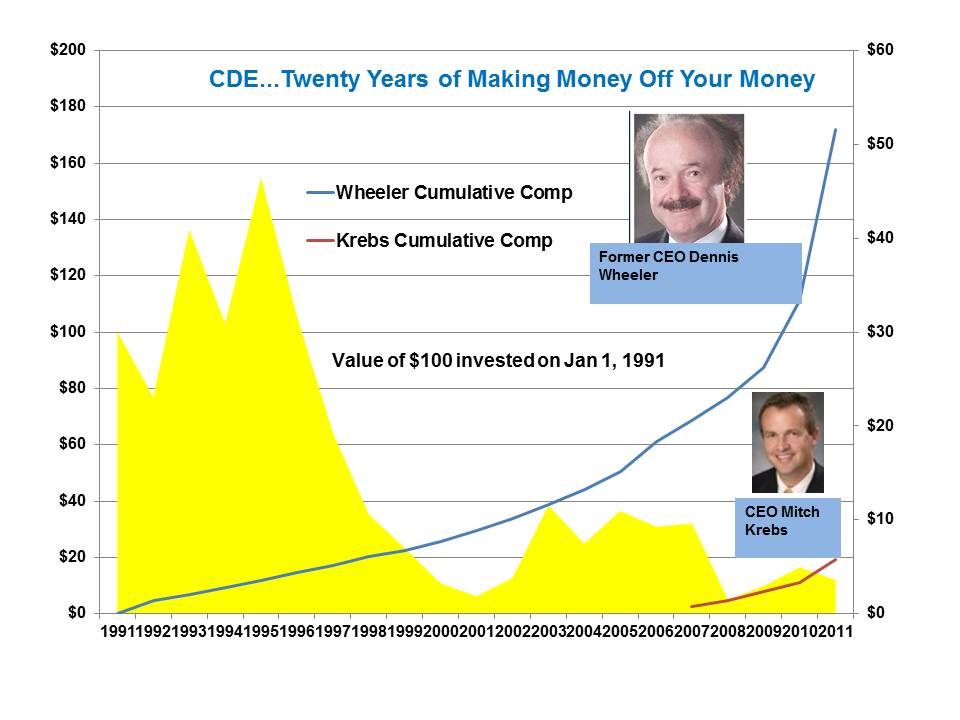Why We're Betting on CDE Management
Yesterday we aligned our interests with the management of Coeur d’Alene. This gold and silver mining company, like much of the mining sector, trades at a steep discount to our estimated NAV of $31 (based on Proved and Probable Reserves). In addition they’re generating $300-400MM of cash annually and the business looks to be going well. Until recently we believed the best way to bet with CDE was to own shares in the company; however, their debt issuance earlier this week makes it much more likely that the company will make acquisitions in the sector rather than buy back additional stock (they recently announced a $100MM buyback which was positive, but the $350MM debt issuance is cash that they really don’t need for their existing business and it doesn’t appear that they’re going to use this additional cash to return value to shareholders).
Since CEO Mitch Krebs owns so little stock, and former CEO Wheeler owns none, management has little to gain from a higher stock price. In addition, the incentive compensation plan in place at CDE clearly favors efficient production based on per ounce costs, a structure that firmly points management towards a bigger company with SG&A spread across larger revenues rather than increasing per share value.
Consequently, aligning with CDE management requires NOT owning stock in CDE but instead owning other mining stocks (through GDX for example) since any M&A activity in the sector is likely to be at the expense of CDE stockholders but may benefit the mining sector more broadly. We have no position in CDE but are invested in GDX. Mining companies have a well earned reputation of generating value for their executives while the owners do poorly. The chart below compares the return to investors in CDE since 1991 with the compensation earned by CEO Dennis Wheeler over that time. Clearly, providing labor to CDE was far better than providing capital.
